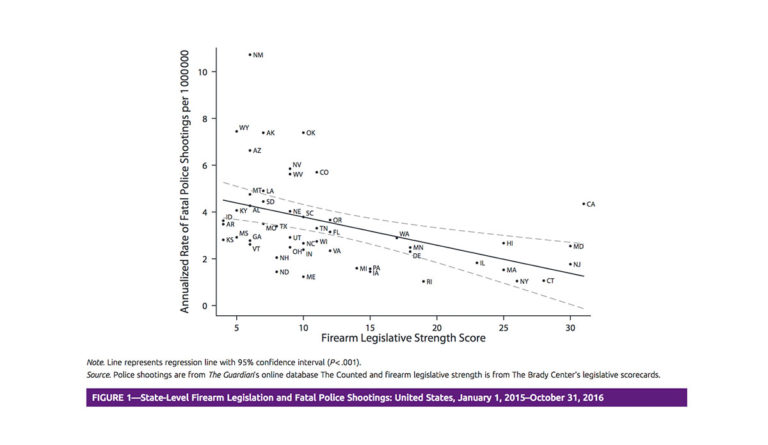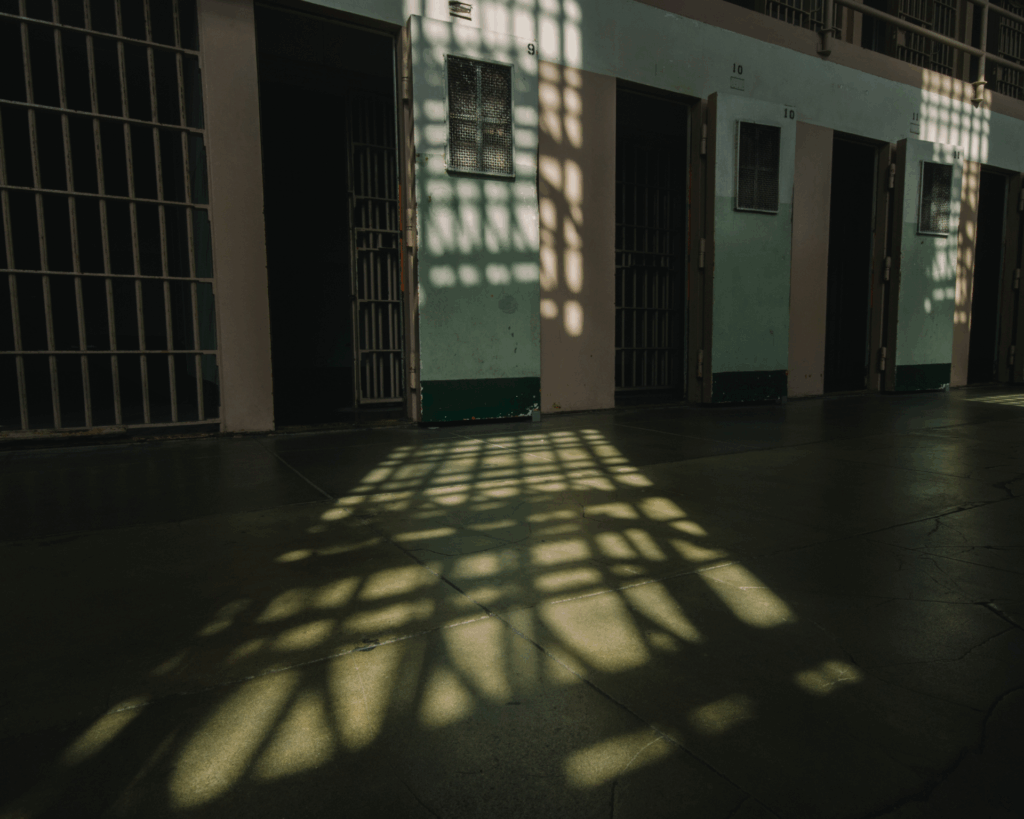Firearm Legislation Linked with Fewer Fatal Police Shootings
Laws that strengthen background checks, promote child and consumer safety, and reduce gun trafficking are linked to lower rates of fatal police shootings.

Read Time: 2 minutes
Published:
States with stricter firearm legislation have fewer fatal police shootings—defined as the rate of people killed by law enforcement agencies—according to research by Aaron Kivisto, Braldy Ray, and Peter Phalen in the American Journal of Public Health.
The authors used two sources of data to show this relationship. First, the Brady Center to Prevent Gun Violence’s legislative scorecard for firearm laws was used to determine the strength of state-level legislation. The scorecard highlights seven categories of laws, such as background checks, duty to retreat, and banning guns from public places. The higher the score, the stronger the firearm legislation is within that state.
Second, The Counted, an online database by The Guardian, was used to assess the number of fatal police shootings. This database uses data from news, open-source reporting projects, and user submissions. A total of 2,021 fatal police encounters occurred in the United States between January 2015 and October 2016. Firearms as the cause of death was responsible for 1,835 of the cases.
Laws that strengthen background checks, promote child and consumer safety, and reduce gun trafficking are linked to lower rates of fatal police shootings.
The analysis showed that even after controlling for age, education, violent crime rates, and household gun ownership, states with the strongest firearm legislation had a 51% lower incidence of fatal police shootings compared to states with the weakest firearm laws. States in the second or third quartiles of legislative strength did not significantly differ in rate of fatal police shootings from states within the first quartile.
The study also assessed the relationship between different types of legislation and rates of fatal police shootings. Laws that strengthen background checks, promote child and consumer safety, and reduce gun trafficking are linked to lower rates of fatal police shootings.
The mechanisms at play and the relative importance of individual types of law are up for debate. However, the relationship demonstrated here is clear—stronger state-level firearm legislation is associated with lower rates of fatal police shootings.
Databyte via Aaron J. Kivisto, Bradley Ray, and Peter L. Phalen, Firearm Legislation and Fatal Police Shootings in the United States. American Journal of Public Health.



